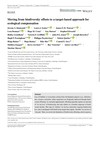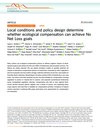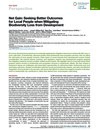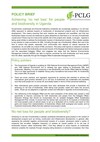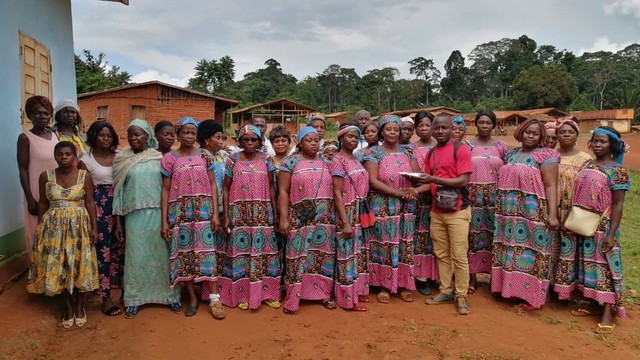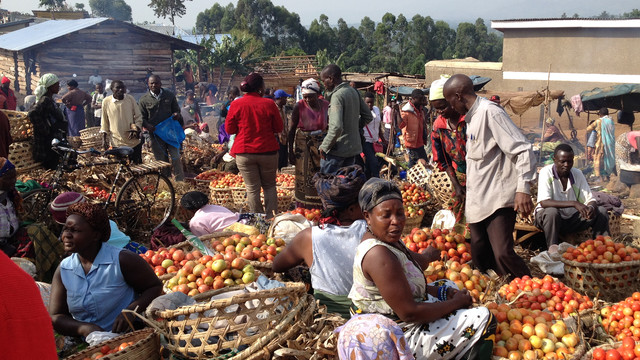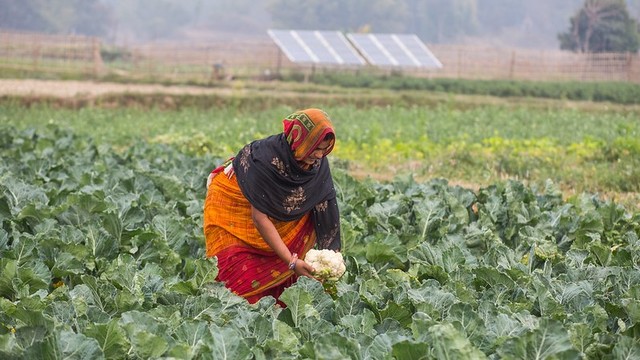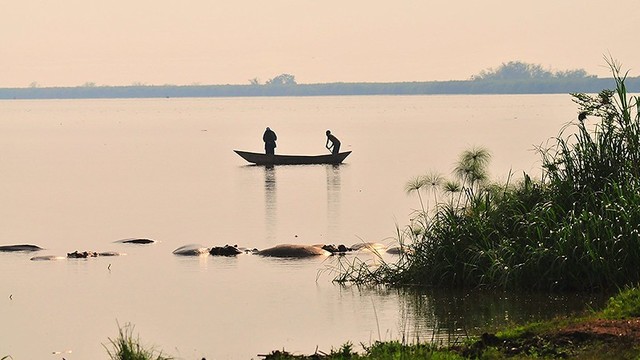Achieving 'no net loss' for biodiversity and people
IIED supported a project in Uganda that explored ways in which ‘offset’ activities can result in no net loss of biodiversity while ensuring that local people are no worse off too.

A man fishing in the waters of the Isimba dam (Photo: International Hydropower Association via Flickr, CC BY 2.0)
Governments, businesses and financial institutions worldwide are increasingly adopting a ‘no net loss’ (NNL) approach to address the impacts of development projects on biodiversity. This means ensuring that impacts on biodiversity are measured and quantified, and that any losses incurred are balanced by gains elsewhere to achieve ‘no net loss’ and, ideally, a net gain.
Measures to compensate for negative impacts include activities such as protecting threatened forests or restoring wetlands, and are known as biodiversity offsets.
However, the loss of biodiversity is not just an environmental problem. It can have devastating social impacts – particularly for poor, rural people who depend directly on biodiversity for their subsistence and livelihoods. And offsetting activities can also have unintended consequences for local people.
This project aimed to translate the findings from research into the Bujagali and Isimba hydropower projects and the associated Kalagala Offset in Uganda, into good practice guidelines on incorporating social considerations into biodiversity offsetting.
What did IIED do?
This project was led by the Interdisciplinary Centre for Conservation Science, University of Oxford. IIED worked with the University of Oxford and consultant Julia Baker to support the development of the project’s theory of change, translate research results into guidance materials and policy advice, and to communicate outcomes to an international audience.
We provided significant support during the drafting of the social good practice principles (PDF), participating in and facilitating several workshops held in Cambridge, Oxford and London, UK, and Kampala, Uganda in 2018. These guidelines were integrated into Uganda’s National Biodiversity and Social Offsetting Guidelines, produced by COMBO (Conservation, Impact Mitigation and Biodiversity Offsets in Africa).
We also contributed to a briefing note for industries in Uganda (PDF) and Julia Baker led the compilation of an international industry briefing note.
In collaboration with NEMA, Baker prepared and led a training course for NEMA staff at their headquarters in Kampala (February 2019), which focused on the social good practice principles, and how they will apply to biodiversity NNL/Net Gain development projects in Uganda.
Publications
Additional resources
Project page at the Interdisciplinary Centre for Conservation Science
Ensuring no net loss for people as well as biodiversity: good practice principles (PDF), Joseph Bull, Julia Baker, Victoria Griffiths, Julia Jones, E Milner-Gulland (2018)
Achieving “No Net Loss” for people and biodiversity in Uganda (PDF) (2018), Nature Uganda Industrial Brief
